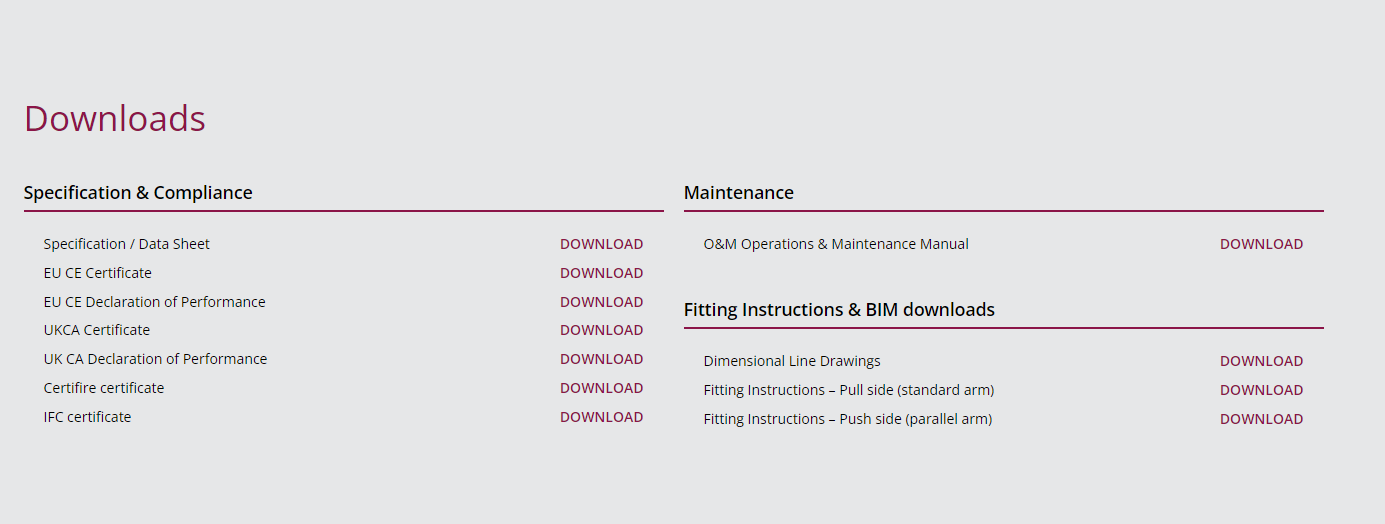What is a Certificate of Constancy Performance/COCOP and what is AVCP?
We operate in an industry full of acronyms and we are sometimes asked, ‘what are COCOP and AVCP?’ COCOP and AVCP are an essential part of UKCA/CE marking, but the terms are not often used or explained. As the majority of Rutland’s door closers are UKCA/CE certified, it’s our job to know about this stuff, so here’s our quick guide to how it all fits together.
What does COCOP stand for?
COCOP stands for ‘Certificate of Constancy of Performance’. In a nutshell, COCOP is the correct name for what the trade commonly, but technically incorrectly, calls the ‘CE certificate’. If a product has a CE marking, it will have a COCOP, and vice versa.If a product has a COCOP, it means that the standards it claims to have met have been achieved through testing systems that have been agreed and harmonised throughout the EU, or designated by the UK. Additionally, it means that the product has been manufactured with these standards in mind.
This means that a door closer manufactured in the UK, marked with the six-digit classification number of, say, 383113, will meet the same standards as a door closer manufactured within the EU showing the same classification number. We have written about classification numbers in more detail
here.
Who defines the standards for a COCOP?
The standards for any construction product in the EU are written by organisations such as SEN – they examine testing standards and methods, and product performance.
What is the process that enforces the standard and what is AVCP?
The Assessment and Verification of Constancy of Performance (AVCP) system defines how to assess products and how to control the constancy of the assessment results. A COCOP can therefore only be awarded in line with the standards set by the AVCP system.
Where will I find COCOP documentation for each product?
COCOP is self-declared by the manufacturer of the product, unlike third party certification, which is published on the third party certification body’s website. Ideally, the manufacturer should make the COCOP for each product easily available to the specifier. For example, Rutland has this information in downloadable format for each product on its website as shown in the image below.

To sum up, you can’t place a construction product on the market without having a COCOP, just as you can’t place one on the market without a UKCA/CE marking, but for some reason the trade prefers to refer to UKCA/CE certificates rather than COCOPs. In fact, we refer to UKCA/CE certification ourselves because this is what customers generally ask for! In reality, if you look at any of the certification relevant to a door closer on the market in the UK, you will notice that ‘Certificate of Constancy of Performance’ is far more apparent than anything else. We hope that helps!
For more information on door closer compliance, please
contact our technical team.

